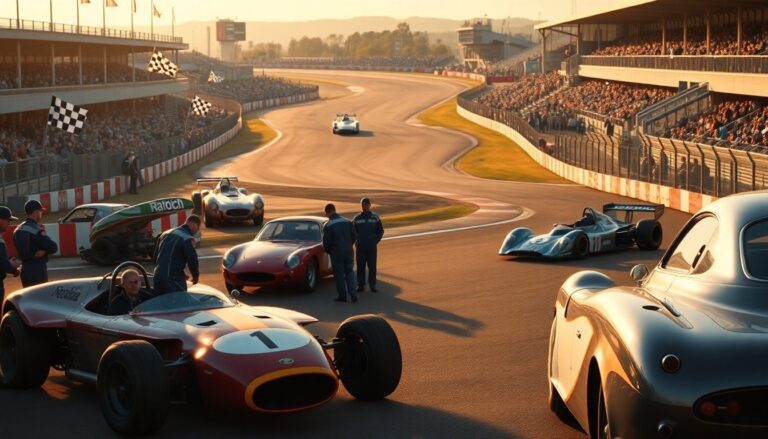Argomenti trattati
The world of motor sport has undergone significant transformation over the decades. It has evolved from straightforward racing events to a complex, multifaceted entertainment industry. This evolution has been fueled by technological advancements, shifts in audience preferences, and the sport’s increasing commercial dimensions. This article examines the key milestones in motor sport history and its future trajectory.
The origins of motor sport
The origins of motor sport can be traced back to the late 19th century, a time when automobiles began to influence society profoundly. The first organized automobile race occurred in 1894, covering 77 miles from Paris to Rouen. This pioneering event laid the groundwork for future competitions, igniting interest in racing among both car manufacturers and enthusiasts.
Early competitions and the rise of motorsports
In the early 1900s, the Indianapolis 500 and the French Grand Prix became landmark events in the world of racing. These races not only drew significant crowds but also fostered a competitive spirit among drivers. They established the foundation for what would evolve into the global sensation of Formula 1 and other prominent racing series. Early competitions served as more than just tests of speed; they showcased engineering excellence, with manufacturers eager to highlight their latest innovations.
Technological advancements and their impact
Throughout the 20th century, motor sport evolved significantly, largely due to technological advancements. The introduction of aerodynamics, turbocharging, and modern materials fundamentally changed vehicle performance. Teams recognized the importance of research and development, investing heavily to gain a competitive edge essential for success on the track.
The influence of technology on racing
In contemporary racing, the integration of data analytics, simulation technology, and telemetry has reshaped team strategies. These tools facilitate real-time decision-making, enhancing both performance and tactical execution during competitions. Additionally, the emergence of electric vehicles has created new opportunities within the sport, exemplified by the growth of the Formula E series, which highlights the potential of sustainable motorsport.
The cultural significance of motor sport
Motor sport transcends its technical foundations, emerging as a vital cultural phenomenon that captivates millions globally. The Formula 1, often referred to as the FIFA World Cup of racing, embodies high-stakes competition and glamour, with renowned tracks such as Monaco and Silverstone. This sport not only entertains but also provides a lucrative platform for brands, with sponsorship agreements that can total billions of dollars.
The evolution of motor sport as a global entertainment industry
Motor sport has transformed into a multifaceted entertainment industry. It goes beyond racing to include celebrity endorsements, live events, and social media engagement. The emergence of platforms like Netflix has pioneered a new genre of docuseries, exemplified by Drive to Survive. This series has significantly boosted the visibility of the Formula 1 series, capturing the interest of a younger audience and expanding its fan base.
The future of motor sport
The future of motor sport is set for significant transformation. Growing environmental concerns are likely to drive a stronger emphasis on sustainability. More racing series are expected to adopt electric and hybrid technologies as part of this shift. Additionally, the incorporation of virtual reality and augmented reality may enhance the fan experience. These technologies could enable spectators to engage with the sport in novel and exciting ways.
Challenges and opportunities
Despite these advancements, the sport faces several challenges. Rising costs pose a significant hurdle, alongside the necessity to stay relevant in a rapidly evolving entertainment landscape. As audience demographics shift, younger fans are increasingly seeking new forms of entertainment. Motor sport must adapt to these changing preferences while preserving its essential identity. Striking a balance between tradition and innovation will be crucial for the continued survival and growth of this exhilarating sport.
Motor sport has significantly evolved since its inception, transforming into a global phenomenon that captivates audiences worldwide. Its rich history, marked by technological advancements and cultural significance, sets the stage for an equally thrilling future.

